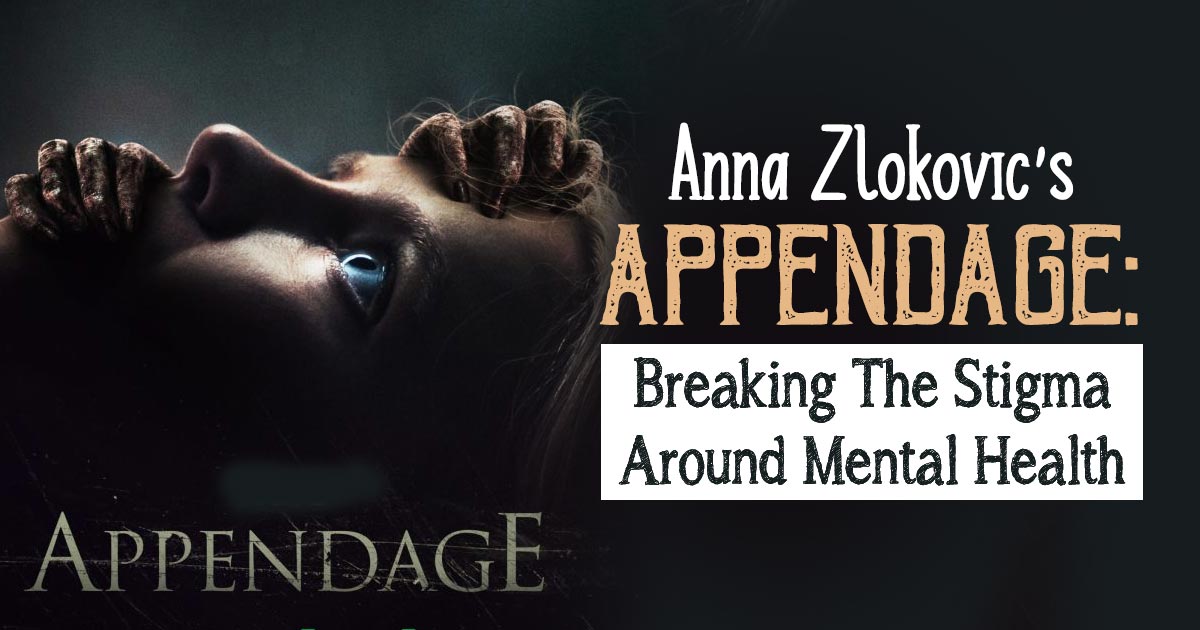Anna Zlokovic’s Appendage (2023) delves into the complexities of mental health by using body horror to visualize the impact of mental struggles on the protagonist, Hannah. In this film, intrusive thoughts, anxiety, and depression manifest as gruesome body parts, which not only adds a unique twist to the body horror genre but also serves as a metaphor for the dark side of mental health.
Anna Zlokovic’s Appendage’s central character is Hannah, a fashion designer portrayed by Hadley Robinson. Hannah’s inner thoughts gradually transform into a sinister entity that feeds on her pain and intensifies her torment. This creative concept of externalizing and personifying mental health issues arose from an exercise in therapy Anna Zlokovic underwent a decade ago.
Her therapist suggested separating anxiety into a distinct character, providing an external perspective on the issue. Zlokovic found this approach compelling and decided to explore it within the context of body horror, where the character becomes a literal monster. This narrative tool effectively conveys the emotional and psychological struggles associated with mental health issues.
Zlokovic’s intention with Appendage is to contribute to the conversation surrounding mental health and reduce the stigma associated with it. She aims to encourage open discussion and emphasize the importance of not trying to eliminate these challenges but instead learning to live with them. This approach encourages self-care and self-acceptance, acknowledging that mental health issues are a part of life that may occasionally resurface.
One notable aspect of the film is its portrayal of Hannah as a complex and at times, “unlikable” character. Zlokovic challenges the conventional expectations of female leads and their likability, highlighting that real people, like Hannah, can make questionable decisions.
The director points out that everyone has moments of unlikability, and this portrayal adds depth and authenticity to the character. Hadley Robinson’s portrayal of Hannah is described as brave and empathetic, making the character relatable and multi-dimensional.
The film does not shy away from showcasing Hannah’s suffering, as this suffering is central to the story. However, Zlokovic notes that some viewers, particularly older male audiences, struggled to empathize with Hannah’s character and her actions. This response underscores the continued existence of stereotypes around female characters and the importance of breaking these stereotypes by portraying women as complex individuals who experience suffering and make choices, both good and bad.
In Anna Zlokovic’s Appendage, the titular creature that Hannah inadvertently releases into the world is brought to life by Amber Mari Creations. This creature evolves, becoming more human-like as Hannah’s anxiety and depression intensify.
The creature is voiced by Emily Hampshire, who also plays the role of Claudia, a character whose dark thoughts materialize in gruesome ways. Emily Hampshire’s versatility as an actor is essential to portraying both the creature and Claudia convincingly.
Creating the creature involved designing it to undergo various stages of growth throughout Anna Zlokovic’s Appendage. The intention was to initially make it somewhat endearing, despite its grotesque nature, so that the audience would feel a certain attachment to it.
However, as the story progresses and the creature’s dialogue becomes more derogatory and harsh, the design reflects this transformation, ultimately turning the character into something repulsive. The thematic motivation behind this design evolution underscores the impact of mental health on one’s self-perception and emotional well-being.





















